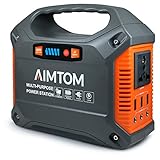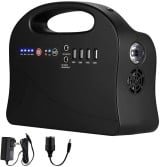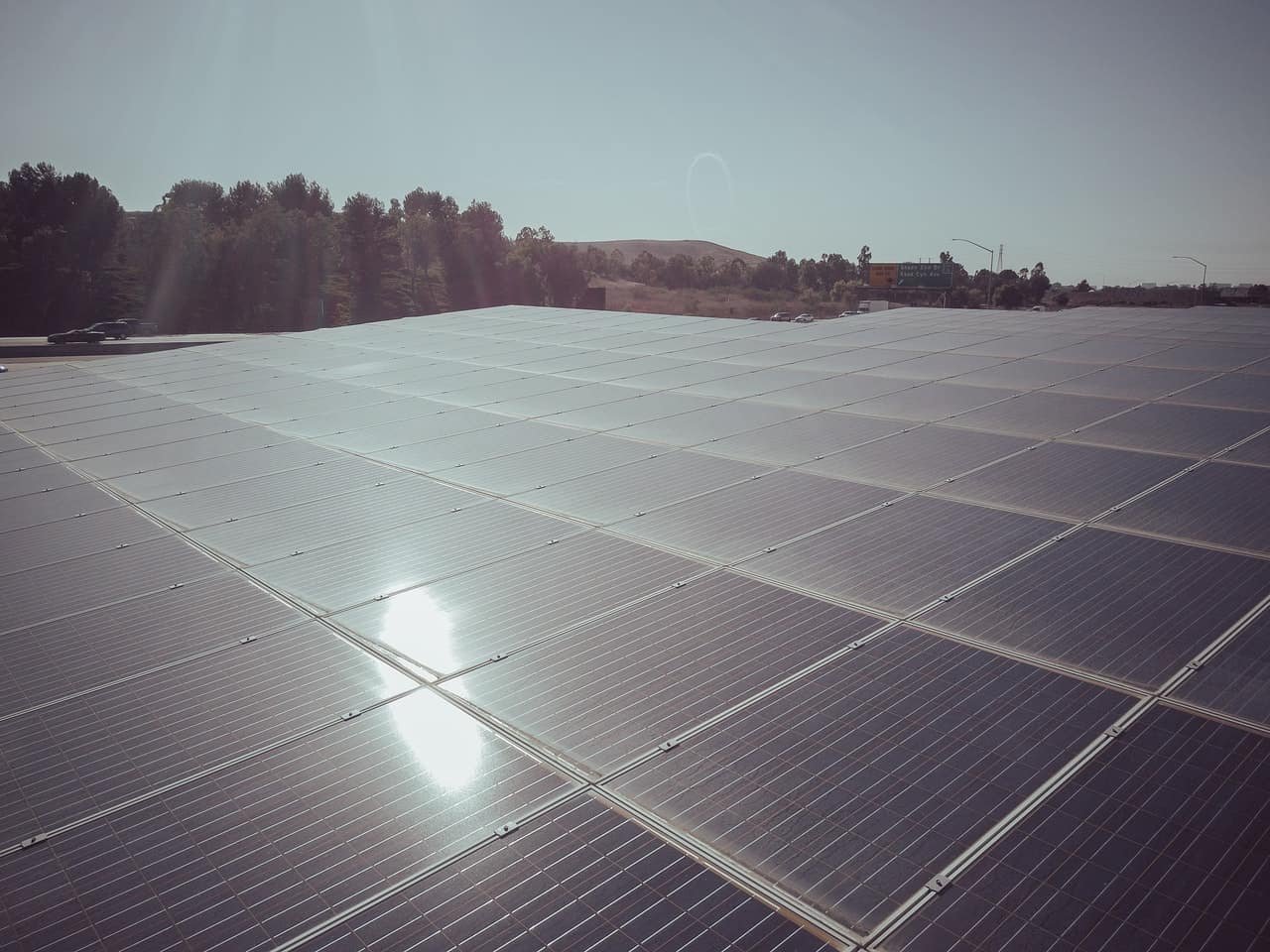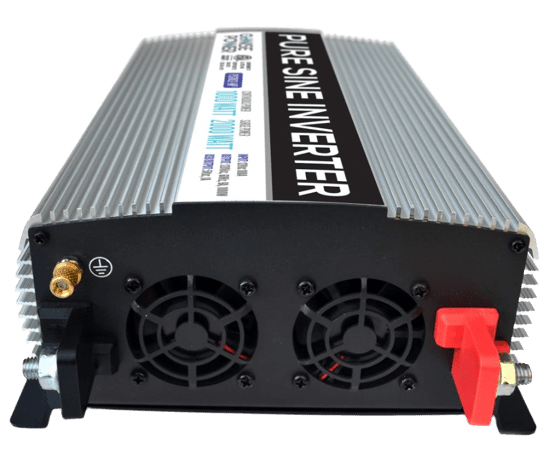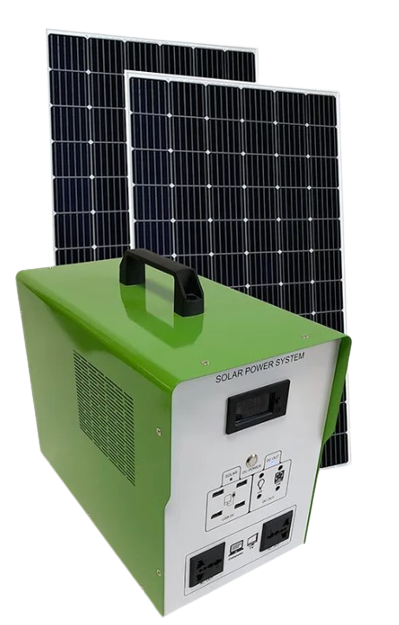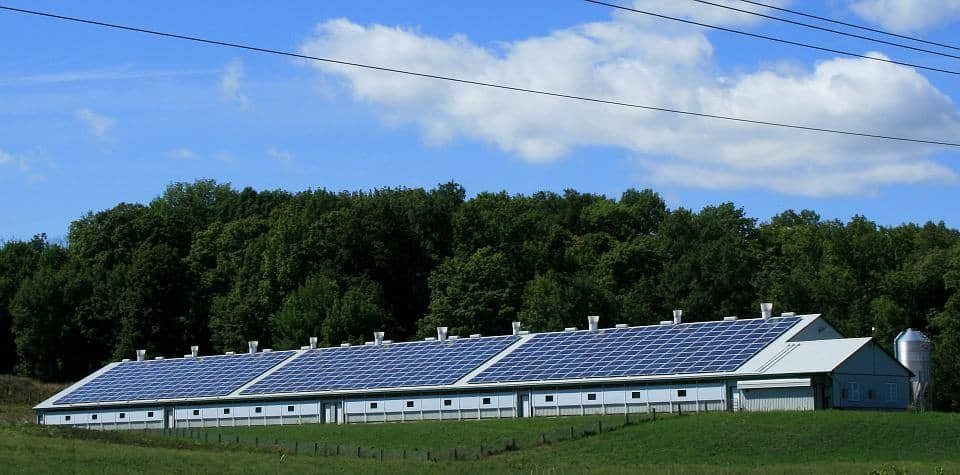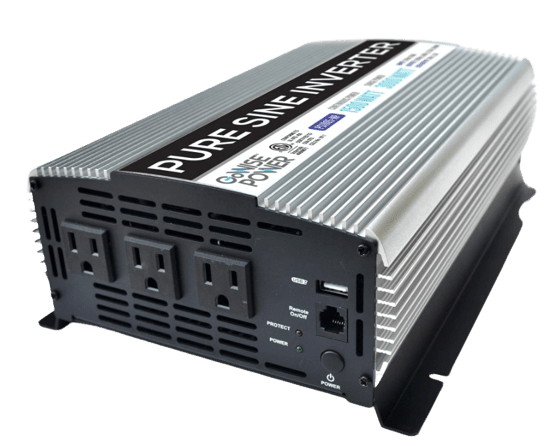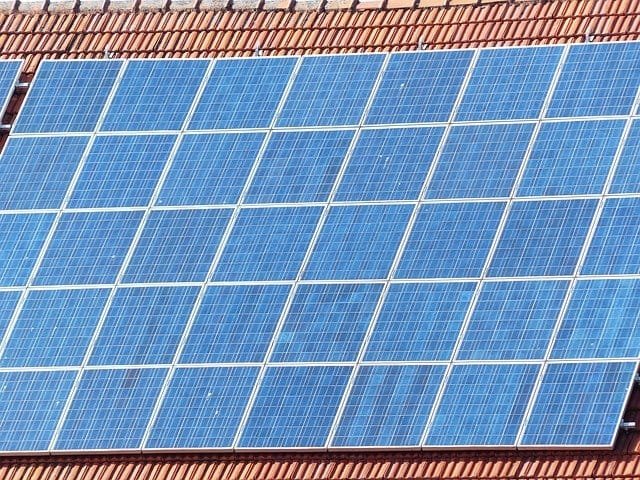When looking for a solar power generator, it is important to consider your specific needs. Solar power has come a long way in recent years and is now the preferred source of energy for millions of people across the world.
It is much more eco-friendly than fossil fuels, quite easy to switch to, and best of all, it’s free!
However, unless you know exactly what you’re looking for, buying a solar power generator can be tricky. In the following article, we will take you through some of the more important things to look for when choosing a solar power generator, to help you make the right choice.
Top Picks Solar Power Generator
How To Choose the Right Solar Power Generator?
When it comes to solar generators, there are a lot of different options on the market. And while they all strive in many ways to achieve the same goal, some products offer better features or are more efficient.
It can be tough to find the right balance of price and performance when it comes to solar generators, as they can vary so much. Some features may not seem necessary, while others are key to getting the job done right.
Before making your next solar generator purchase, here is the list of some of the critical things to take into consideration:
Purpose
What are your intentions for using the solar power generator? Is it your priority to have a backup power source for your home or business in case of an electricity outage? Or would you rather have a secondary power source that you can take with you when you go camping?
When you’re preparing to buy a solar generator, the first things you need to consider are what you’ll be using it for and how much power you’ll need. This will determine what type of solar power generator you should buy.
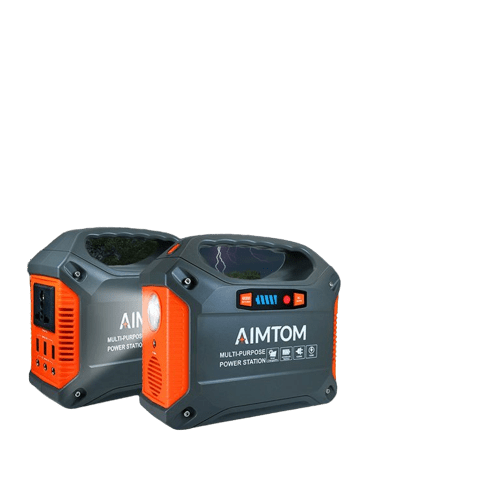
There are two main types of solar power generators:
Portable Solar Generators
If you’re looking for renewable energy while on the move, then you’ll need a portable solar generator. Compact and efficient, these machines are great for use anywhere, when camping, picnicking, and other outdoor events.
Even though they have a much lower wattage than solar backup generators, they can still work to power up and recharge various small electrical devices, including your phone, tablet, lights, camera, laptop, a small fridge, and small medical devices like a CPAP machine.
They are not designed to power a large TV unit or a full-size refrigerator. These units usually require larger power output and higher battery capacity.
Solar Backup Generator
These are more lasting renewable energy solutions that are recommended for homes and businesses in the event of a backup. They are known to have very high wattage capacity and will normally use multiple batteries to increase power storage depending on your requirement.
While solar backup generators are suitable for powering the essentials within the home such as lights, TVs, refrigerators, phones, and computers, or within businesses such as pieces of equipment and power tools, it’s hard to find one that will power everything. So, keep this in mind when making your purchase.
Battery Storage Capacity
This is largely dependent on your purpose. Battery storage and battery life is important for two reasons:
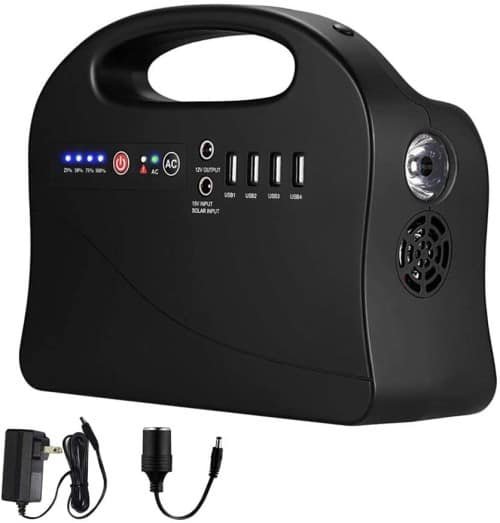
1. It allows you to use your generator during times of limited sun, like at night or during bad weather.
2. It stores any excess energy that you’ve managed to harness during the day.
Beware of solar generators that have very little or no battery storage capacity as reliability and ease of use will be severely affected. Obviously, the higher the battery’s capacity, the longer you can run the generator in between charges.
The amount of time this equates to will depend on the actual wattage each of your devices is demanding, but generally speaking, the higher, the better. If you are working within a budget, be sure to factor in the cost of batteries when comparing different models.
Solar PV Input
This refers to the solar panels that are used to power the solar generator. If you want to have continuous power, you’ll need enough solar PV input.
Some generators will come with solar panels already attached, while others will require that you purchase them separately and attach them yourself. Be aware that, if they are not already connected, you may need to buy additional components to complete the installation.
Regardless of the solar panel dimensions, the wattage or the amount of power that a solar panel can produce directly impacts how quickly a generator can recharge. The number of hours it takes to charge a solar power generator can be calculated by taking the generator’s capacity wattage and dividing it by the total wattage of the solar panels.
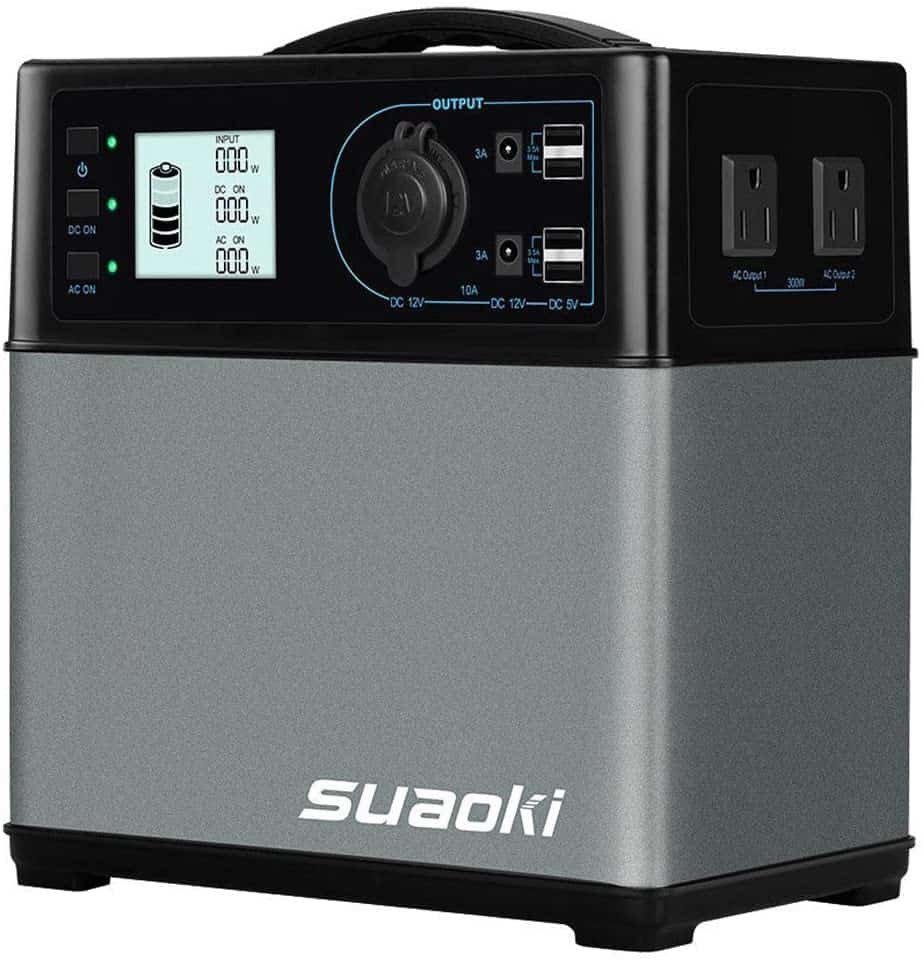
If you wanted to charge a solar power generator with a capacity of 1000 watts, it would take 5 hours using 200 watt solar panels. If the generator capacity is less than 2500 watts, it should only take around 6 hours to charge.
Anything longer than that is considered inefficient and will affect the solar power generator’s usability.
Inverter Rating
The inverter’s job is to take low-voltage DC power and turn it into the 120-volt AC power that most appliances and devices use. Without an inverter, the power generated by the solar panels couldn’t be used.
Inverters are rated by the maximum watts it can extract from a solar generator at any one time. For example, a 1000 watt inverter can draw up to that in AC power.
As a rough guide, most decent solar power generators will have a usable watt-hours-to-inverter-rating ratio of around 1.5:1 (or 1500 watt-hours: 1000 watt inverter).
Portability
Most of the weight of solar power generators comes from batteries, so if you want to make them more portable, you will have to sacrifice some of the capacity. However, systems with only one battery already weigh around 100 pounds, so maybe that won’t be too much of a loss.

If you plan on using your solar power generator as a backup at home, weight is not as big of a factor. However, if you plan on moving it around often, weight becomes a more important aspect to consider.
Overall Quality
When looking at solar power generators, it is important to consider the quality of the components and the credibility of the manufacturer. It is highly advisable to see the actual generator before purchasing it.
Make sure to check that the components and accessories are of good quality. Solar power generators take a lot of abuse, most likely if used on an RV or other vehicle that is mostly on the road, so it is important to buy a model that is rugged and durable enough not to fall apart after a few recharges.
A fairly good quality solar controller and inverter should last you for at least two years with no issues. However, be aware of solar power generators that have little to no warranty protection as they are likely of lower quality and won’t last as long.
What Are the Benefits of Solar Power Generators Over Gas-Powered Generators?
There are many reasons to choose a solar power generator over a gas one. Solar power is a renewable resource, meaning it won’t run out like fossil fuels. Solar generators are quiet and don’t produce any emissions like gas generators, making them better for the environment.
Solar generators are also cheaper to operate and maintain, they don’t take up much space and can also be used in remote locations where there is no access to gas, making them ideal for camping trips and RVing.
Best Solar Power Generator Reviews
With so many different solar-powered generators available, it can be hard to know which one to buy. To help you make your decision easier, we’ve put together a quick review guide to give you a rundown.
Here are some of our best picks among the most popular solar generators available. We’ve looked at a variety of factors, including the pros and cons, to help you make an informed decision.
Best Upgrade Option
AIMTOM Portable Solar Generator, 155Wh
It may be little and weigh just 3.48 pounds, but this solar generator on offer from AIMTOM still packs a heck of a punch. With 3 x USB, 3 x 12v DC, and a 110v AC outlet, this portable solar power generator is the perfect accessory to take camping or any other outdoor event.
Best Value Option
PowerOak Powerhouse Compact 400Wh
No products found.
If you’re less bothered about the size of the solar power generator and more concerned with its storage capacity, be sure to check out this model on offer from PowerOak.
Best Alternative Option
TELONGPU Generator Power Station, 200Wh
It may not be the most powerful of solar power generators, but the TELONGPU Generator Station is still worth a mention for sure. At 200Wh, it’s not a lousy capacity, and there are still plenty of output ports in which to charge multiple devices.
Jackery Portable Generator, Powerpro 500Wh
Super lightweight at 12.5 pounds, this 500Wh generator is ideal for taking with you while on the move. You can charge it in around 6 hours from an AC wall outlet, or in approximately 7 hours using a 102w solar panel.
It’s fitted with a 100v AC outlet, two 12v DC 6MM ports, a DC cigarette lighter, and two fast-charging USB ports in which to charge all your electrical devices. The transparent display screen lets you know how much charge is left in the battery at all times.
Pros
- High capacity
- Multi-output charging ports
- ETL Safety Certified
- Very well crafted
Cons
- A bit pricey, but worth it.
AIMTOM Portable Solar Generator, 155Wh
This reliable solar generator is just what you need for your next camping trip! With 3 USB ports, 3 12v DC ports, and a 110v AC outlet, through these port and outlet options, users can power all their electronics, laptops, and cell phones.
Plus, the 155Wh capacity means this thing has the ability to handle multiple devices at once. And if there’s ever an emergency, the SOS emergency LED flashlight will come in handy.
Pros
- Compact
- Multiple charging ports
- Impressive price
- Built-in Battery Management System Technology
Cons
- A bit underpowered
PowerOak Powerhouse Compact 400Wh
No products found.
If you’re looking for a solar power generator with a good storage capacity, the PowerOak model is a great option. It’s portable, with a capacity of 400Wh, and can power any AC, DC, or USB device that’s under 220Wh.
There’s a clear LCD to let you know how much charge is remaining and it even has a jump starter alligator clip cable should your car battery fail you at the worst time.
Pros
- Large capacity battery
- Various recharging options
- High-resolution LCD display
Cons
- A little costly
TELONGPU Generator Power Station, 200Wh
The TELONGPU Generator Station is a great solar power generator, even though it’s not the most powerful one. This product is still worth mentioning because it has a lot of features.

For example, it has a built-in LED flashlight and a compass, which is really useful if you’re a natural explorer. It’s also very lightweight and well-designed, so you won’t even notice you’re carrying it.
Pros
- Handy and lightweight design
- Very affordable
Cons
- Capacity calls for upgrade
- The case seems a little low-quality
Poweradd ChargerCenter Compact 185Wh
No products found.
If you’re looking for a portable solar power generator that won’t weigh you down, the PoweredCharger Center is a great option. It’s one of the lightest generators on the market. It comes with AC, DC outlets, and USB charging ports.
Plus, it’s built with high-quality components, a great value for money. However, the performance of this generator is shocking. With 185Wh capacity, it’s not the lowest on the market – but it does make a difference.
If you don’t want to wait a year to charge your devices, we recommend choosing a different model.
Pros
- Ultralight
- Plenty of charging options
Cons
- Plain design
- Mediocre performance
- Takes longer to charge
Final Recommendation
Congratulations! You are now a step closer to getting the model that you need when going off the grid. Thanks for reading up to the very end.
Here’s a simple tip, if you want a great solar power generator, something that is easy to move and will certainly last a long time, the Jackery Portable Generator is a good choice. It can be used while moving around outdoors or as a backup power supply at home. It is a little pricey, but it is a good investment.


